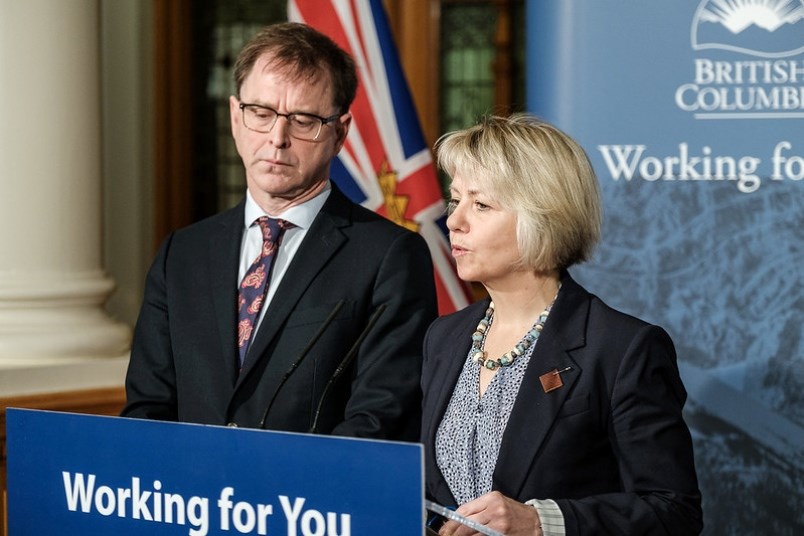Is COVID-19 no worse than a bad cold or flu for the vast majority of the population? That’s what many of the critics and the anti-mandates folks have been saying for a long time.
So what if they’re right?
They just might be, if the recent actions of the B.C. government are any indication.
There are no more daily updates. There is no more rigorous data collection. There are no more masks or vaccine passports. Big events are back on. Take your own precautions as you see fit. In the words of a wise woman – be kind, be calm, be safe.
That’s in spite of the fact COVID-19 and its variants are as widespread in Prince George and throughout the province as they’ve ever been, people are still getting sick and dying, and the virus – in all of its forms – seems here to stay.
What’s changed? Obviously, a significant portion of the population was vaccinated at least once or twice and about half took the booster. But was it all necessary? How much did the lockdowns and the vaccines and the mandates really help? Could we have taken our masks off three months or six months ago? Would we have been better off without masks at all, maintaining occupancy limits and distancing at stores and events, and encouraging people to shop alone?
These are legitimate questions, and they demand answers from government and public health officials, not for what’s happened in the past two years but for what happens next time. A globally connected world with nearly eight billion people in it – and a majority of them in crowded cities – means it is only a matter of time before a never-seen-before virus surfaces again. Responding properly, particularly if the next virus is far deadlier, means the majority of people have to trust what their leaders and public health officials are telling them.
And that trust has to be earned by admitting to the mistakes made over COVID-19.
Clearly, COVID-19 hit the world hard, as seen in the overflowing hospitals around the world this time two years ago. Later, the virus slammed into hospitals, nursing homes and care facilities in Prince George and elsewhere. Many people died alone in their beds. The fortunate ones were at least able to be with family and friends through Zoom and FaceTime as they passed.
About one billion people get the flu annually and between 300,000 and 600,000 people die from it, according to the World Health Organization. The COVID-19 dashboard from Johns Hopkins University reported Wednesday that just over 500 million had COVID and 6.2 million died in the past two years. Taken from both a global and a historical perspective, were the last two years the equivalent of a really bad flu season?
It's going to be hard for future researchers to get to the truth. Cause of death is a slippery thing at the best of times and now the province changed the rules last week on how it is recording a death caused by COVID-19.
In other words, it’s OK to change responses and admit mistakes. It would go a long way if, at the end of a thorough review of the COVID-19 response, if Health Minister Adrian Dix and Dr. Bonnie Henry were to own their errors and apologize for them, starting with the decisions they made that were based on guesses, not data. It’s reasonable to expect the worse when a mysterious new coronavirus emerges and make a lot of people sick. But was it reasonable to keep expecting the worse when the recovery rate was so high, even before the vaccine had been developed and circulated? What could and should have been done differently?
There are also broader social questions that have to be addressed.
Was the focus on COVID-19 for two years at the expense of tackling the much deadlier (in B.C. and Canada, certainly) and more difficult epidemic around opioid addiction and toxic drug overdoses? Does B.C. and Canada have enough hospital beds and are there enough doctors and nurses, especially in rural areas? What changes need to be made to the global supply chain so that the handful of countries that make drugs, masks, ventilators, and other essentials don’t get to hog them all and/or charge extortionist fees in times of emergency? What do we need to stockpile, how much do need and how much will it cost?
Why did the rich get even richer while staying safe in isolation during the pandemic while working people kept showing up to their jobs and fell even further behind in the process? Why do multinational corporations insist on governments staying out of their way but are the first to come crying for help and bailouts when the market can’t fix their problems?
All of these questions are healthy and the better we face them and address them head on, the better humanity’s response will be the next time around.
Editor-in-chief Neil Godbout


